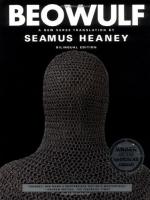|
This section contains 2,037 words (approx. 7 pages at 300 words per page) |

|
SOURCE: Moldaw, Carol. “A Poetic Conscience.” Partisan Review 62, no. 1 (winter 1995): 144-48.
In the following review, Moldaw contrasts the subject matter of Heaney's earlier works with that of Seeing Things and Selected Poems, noting a shift from materiality to abstraction.
Seamus Heaney has long been praised for the textured “thingness” of his poetry. If poets have a ruling element, earth has been his. In 1976, after Heaney's fourth book, North, came out, Robert Fitzgerald noted that Heaney fulfills, as Yeats himself did not, Yeats's dictum in “The Municipal Gallery Revisited,” that “All we did, all that we said or sung / must come from contact with the soil.” In “North,” Heaney's poetic conscience, in the form of the “longship's swimming tongue,” counseled him to “trust the feel of what nubbed treasure / your hands have known.” This image of “nubbed treasure” could stand for much of Heaney's poetry. His early work, from...
|
This section contains 2,037 words (approx. 7 pages at 300 words per page) |

|


